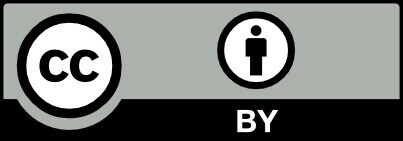Ethical Principles and Publication Policy
Ethical Principles
KÜN: Journal of Literary and Cultural Studies upholds a publication policy grounded in academic integrity and publication ethics. Accordingly, the responsibilities and ethical obligations of authors, editors, the editorial board, and reviewers are defined as follows.
Publication Ethics
KÜN: Journal of Literary and Cultural Studies adheres to the Code of Conduct and Best Practice Guidelines established by the Committee on Publication Ethics (COPE). Editors are obliged to follow the COPE Guidance for Editors, while reviewers must comply with the COPE Ethical Guidelines for Peer Reviewers.
The journal aims to contribute to both theoretical and applied scholarship through the publication of high-quality studies. The quality of this contribution reflects the integrity and collaboration of authors and their supporting institutions. KÜN operates with a Blind Editorial Board and a Double-Blind Peer Review process. All articles published in the journal must conform to scientific and ethical research standards.
Compliance with research and publication ethics is strictly maintained across all manuscripts and materials published in the journal. The following sections outline the ethical standards we carefully observe.
Obligations Regarding Ethical Issues
The Editorial Board monitors and enforces ethical publication standards. It remains open to issuing corrections, clarifications, retractions, and apologies whenever necessary to uphold academic and ethical integrity.
The Board takes great care to prevent plagiarism, data fabrication, and falsification.
KÜN collaborates closely with other publishers, professional organizations, and industry partners to establish standards addressing ethical misconduct, errors, and retractions.
When required, the journal agrees to cooperate fully in legal and institutional investigations.
The Board takes great care to prevent plagiarism, data fabrication, and falsification.
KÜN collaborates closely with other publishers, professional organizations, and industry partners to establish standards addressing ethical misconduct, errors, and retractions.
When required, the journal agrees to cooperate fully in legal and institutional investigations.
Detection of Plagiarism
KÜN is committed to promptly correcting and publishing any identified issues related to plagiarism, duplicate publication, or research misconduct as soon as such cases come to light.
To prevent plagiarism, editors use recognized web-based plagiarism detection tools.
If a reader identifies a significant error, inaccuracy, or ethical concern (e.g., plagiarism, redundant publication) in a published article, they are encouraged to contact the editors via kundergisi@kapadokya.edu.tr.
We welcome such feedback as an opportunity for improvement and aim to respond swiftly and constructively.
Evaluation of Submissions
KÜN applies both Blind Editorial Board and Double-Blind Peer Review evaluation systems.
All submissions are first examined by the responsible associate editor for format compliance and adherence to publication principles, followed by a plagiarism check.
Manuscripts failing to meet these criteria are returned to the author.
Eligible submissions are anonymized and forwarded to the Editorial Board.
The Editorial Board evaluates manuscripts for scientific merit, originality, and coherence with the journal’s scope. Suitable manuscripts are then subjected to double-blind peer review or, in the case of translations and reviews, editorial evaluation.
Section editors may review manuscripts themselves or assign them to appropriate reviewers. Reviewers are expected to provide their reports within the designated timeframe, maintain academic impartiality, and use constructive and professional language.
They must not share or disclose manuscripts prior to publication, ensuring confidentiality throughout the review process.
If reviewers detect information that could reveal the author’s identity or encounter any conflict of interest, they must decline the review and notify the editors immediately.
Authors may be asked to revise their manuscripts in line with reviewers’ or editorial recommendations.
Upon revision, authors must provide a response report explaining implemented and declined suggestions with justification.
Revised manuscripts are then reviewed by the associate editor for consistency with the reviewers’ comments. Final publication decisions are made by the chief editors.
Before online publication, proof copies are sent to the authors for final review. Authors may request only minor mandatory corrections at this stage; substantial revisions requiring reformatting will not be accepted. Upon acceptance, authors must sign the Copyright Transfer Form prior to publication.
Confidentiality Statement
KÜN acts as a data controller and is committed to protecting personal information in full compliance with Law No. 6698 on the Protection of Personal Data (KVKK).
All personal data are processed and stored in accordance with legal regulations and confidentiality principles.
The journal implements the highest level of data protection measures to ensure the secure collection, processing, storage, and confidentiality of users’ personal information.
As a data controller under KVKK, KÜN processes personal data within the limits defined by law.
For detailed information, please see the Privacy Policy section of the journal’s website.
Plagiarism Policy
Submissions to KÜN are evaluated for plagiarism using iThenticate and İntihal.net software.
-Manuscripts with a similarity index of 10% or lower (excluding quotations and references) are accepted for peer review.
-Those with a similarity index between 10% and 20% are returned to the author for revision before peer review.
-Manuscripts with a similarity index above 20% are rejected without revision.
If ethical or scientific issues are identified during the peer-review process and necessary corrections are not implemented, the manuscript will be rejected for publication.
-Manuscripts with a similarity index of 10% or lower (excluding quotations and references) are accepted for peer review.
-Those with a similarity index between 10% and 20% are returned to the author for revision before peer review.
-Manuscripts with a similarity index above 20% are rejected without revision.
If ethical or scientific issues are identified during the peer-review process and necessary corrections are not implemented, the manuscript will be rejected for publication.
Kün: Journal of Literary and Cultural Studies is licensed under Creative Commons Attribution 4.0 International (CC BY 4.0).
